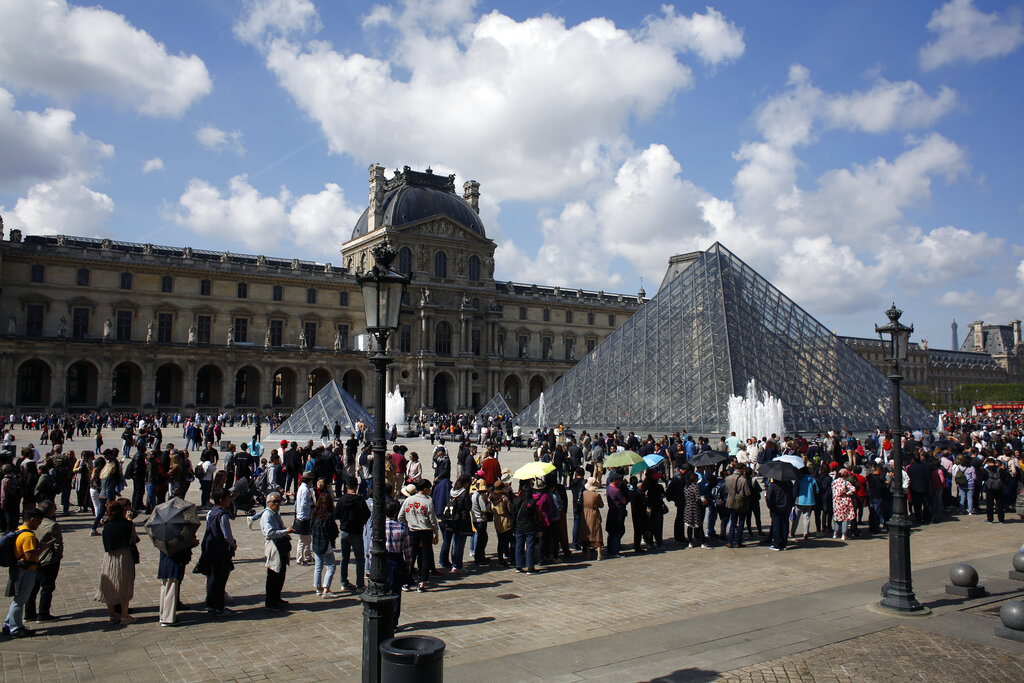How to be a good traveler in the age of overtourism

Tourists wait in line to visit the Louvre museum as it reopens, in Paris, Wednesday, May, 29, 2019. The world’s most visited museum was closed on Monday after employees complained they were harassed by tourists waiting to see the Mona Lisa. (AP Photo/Thibault Camus)
In Paris, the Louvre Museum closed for a day this week because workers said the crowds were too big to handle. In the Himalayas, climbers at Mount Everest are concerned that the peak has gotten too crowded, contributing to the highest death toll in years.
In cities and destinations around the world, from Barcelona to Bali, “overtourism” has become a year-round problem.
A mashup of discount airlines, inexpensive Airbnb rooms and social media shares have brought the blessing of tourist dollars and the growing curse of noisy crowds and even dangerous conditions to places once known for off-the-beaten-path charm or idyllic silence.
So how do you visit these places without doing harm? Four tips from experts:
Article continues after this advertisement
Remember, it’s not all about you
Article continues after this advertisementVenturing far from home and experiencing an unfamiliar culture can be transformative, bringing a sense of freedom and even hedonism. But don’t forget: This is already someone’s culture, someone’s home. So check out what behavior is considered appropriate. What are its environmental policies? If you’re booking through a travel service, ask for guidance.
Put picture-taking in perspective
With phone cameras, we’ve become accustomed to taking pictures constantly. But taking photos of people, their children and their homes can be invasive. Respect the physical environment. Don’t trample the wildflowers to get the best shot.
You’ll probably enjoy your experiences more fully if you spend less time snapping photos, says University of Denver assistant professor Gia Nardini, coauthor of a study on the subject.
And showing restraint can help protect the place you’re enjoying from overtourism.
Give back
When planning a cruise along the Amazon River, know what villages you’d be passing and what children there need. Bring them something they can use and take back local crafts to help them earn a living.
Spend money in the local economy rather than at international hotel chains, and seek out locally owned restaurants and bars.
To help the environment, use public transportation as much as possible. Saves you money too.
Finally, take your packaging with you when you leave a place. And never buy gifts made from endangered animals or other illegal materials.
Say hello
Even in places where many locals speak English, learning a few words in their language—please, thank you, yes, no—will earn you good will and a more authentic experience.
Amid the excitement of even bucket list-level travel, Deichmann says, keep in mind: “What if this were your village?” —AP